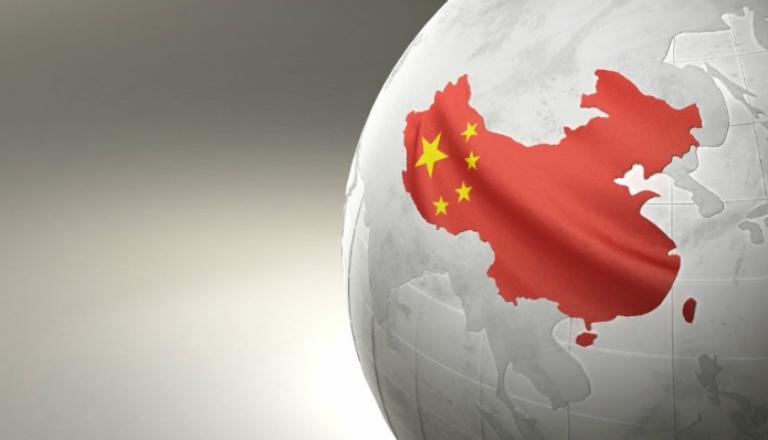
5 steps to build your international network
Over the past several years, I have had the privilege of working with hundreds of small and medium sized businesses intent on expanding internationally. Most of them have plenty of ambition and quite literally want to conquer the world with their promising products, services and innovative technology. Many of them understand that selling internationally is an imperative because local markets are, by their very nature, limited. Indeed, research consistently shows that firms that sell internationally tend to be more innovative, draw upon broader and more diverse data sets and grow faster than their competitors.
When it comes to selling internationally, however, most firms tend to forget some of the basics that got them started in business. I’m talking about ‘networking.’ At EDC, our team of Export Advisors monitors some of the most frequently cited pain points among firms with international aspirations. Of these, ‘finding customers and partners abroad,’ wins out. As daunting as this challenge might seem in the international context, it all comes down to your ‘networking strategy.’ That’s right - you need a strategy when it comes to networking internationally, and it requires being deliberate, thorough and audacious.
Here are a few tips on where to get started, especially if you’re a B2B-type business:
Start at home but think global
Once you’ve identified the most promising foreign market for your business (and I realize how difficult this step may be and will offer more insights on this in the future), map out some potential partners with an international presence that have offices here in Canada. Depending on your business and its go-to-market strategy, these partners might include lawyers, accountants, customs brokers and logistics firms. Often the same firms your working with locally have international networks themselves, or are working with clients that do. In addition, speak to your customers, especially if you’re in a supply chain, as well as your suppliers. Determine where else they are doing business and don’t be afraid to ask them for introductions.
You might also contact Canadian public sector organizations like the Trade Commissioner Service (TCS). The TCS employs trade professionals stationed here in Canada and at Canadian Embassies all over the world. The TCS’s mandate is to open doors and identify partners for you in those markets, thanks to their hard work developing tremendous networks. I recommend that you come prepared before meeting with a Trade Commissioner. If you can demonstrate that you’re organized and committed to selling abroad, you’ll catch their attention. The best part is that their services are free.
Have a purpose and align it to your strategy
I’ve been to countless conferences and trade missions abroad and am astounded by how many companies fail to align conference selection with a deliberate partnership strategy. Agents, distributors and other intermediaries are often the critical glue that keep international trade together. They usually attend trade conferences that relate to market verticals. Attending a gathering of your local industry peers may be interesting but likely not helpful to your partnership hopes. Companies looking to represent your product or services will convene at gatherings in your target market. Think a disaster relief conference if you sell mobile medical clinics. Think home building shows if you sell an innovative construction solution.
Agents and distributors in foreign markets likely work on different terms than you might be used to at home. They may ask for longer payment terms or performance bonds or even ask to look at your financial statements as talks progress. In this regard, come prepared with non-disclosure agreements and think through important terms like pricing, Incoterms, your expectations (or ‘obligations’ to use legal speak) of the partner, and the support that you can offer, be it financial or training. Much of this would likely be reflected in an agency or distribution agreement, so it is always best to speak with your lawyer in advance of confirming any new partnership, especially one in a new market.
Make sure to reach out to the market-based Trade Commissioner in advance of your trip. They may be able to proactively seek out agents and distributors for you to meet with during your market visit. In addition, try to connect with associations that have strong networks both in your target market and back home. These associations are often nationally oriented (e.g. the Canadian Chamber of Commerce in Mexico) or industry specific (such as a bi-national manufacturers’ association).
Be diligent
After identifying potential partners - be they agents, distributors or some variation (such as a value-added reseller if you’re in the tech industry) - ask for references, speak to some of their existing clients, and get a sense of their capacity (both from an HR and timing perspective). You might also ask for a set of financials (ideally audited). You should also be thinking about corporate social responsibility risk especially when working with a new partner. Understanding if this partner has been charged with fraud or corruption is critical. Here again there are a range of organizations that can help you with this risk. For more information you can email one of EDC’s Export Help Advisors at exporthelp@edc.ca and they can point you in the right direction.
Get it in writing
It should go without saying that new partnerships need to be consummated in writing. Agency, distribution, joint venture and licensing agreements all help to formalize how your relationship with a new partner will work, clarify expectations and provide frameworks for resolving conflict.
It's also important to understand the difference between an agent and a distributor. An agent typically identifies sales prospects and enters into sales contracts on your behalf and to which you are bound. Agents usually do not have direct contractual obligations to the end customer, but they have obligations to you. In an agency arrangement, control over price setting, possession of goods, and client interaction lies with you.
Conversely, distributors typically purchase your goods or services and obtain the rights to re-sell them in a particular geographic area. A distributor is an essential intermediary if your business requires a local market presence to establish a brand and create trust with your customers, but you are not ready to set up a subsidiary there just yet.
Finally, especially if you’re a SaaS based company, both licensing and technology transfer agreements are essential to allowing a partner in a foreign market to use your IP and pay you for it in the former case, or transfer know how, including IP, while leveraging a partner’s strong domestic brand (ideally one that’s synonymous with quality and innovation).
Help them succeed
Don’t assume that your new partners, especially agents and distributors are diligently working away drumming up business. Regularly schedule calls with them. Hire a translator or temporary employee with foreign language capabilities if language is a communications barrier. Moreover, create and regularly update training tools to ensure that your distant sales partners understand your product or service. Leverage their local market knowledge and work with them to refine your value proposition in that market.
Networking in the global context is similar to networking at the start-up stage. A sound business model needs a clearly articulated plan, identifiable sources of revenue, and capabilities for executing on that vision. But when all of this starts to line up, it’s partners that ultimately help make that plan a reality.
If you’re interested in learning more about building an international network, I will be speaking to this topic in a webinar this week.


















